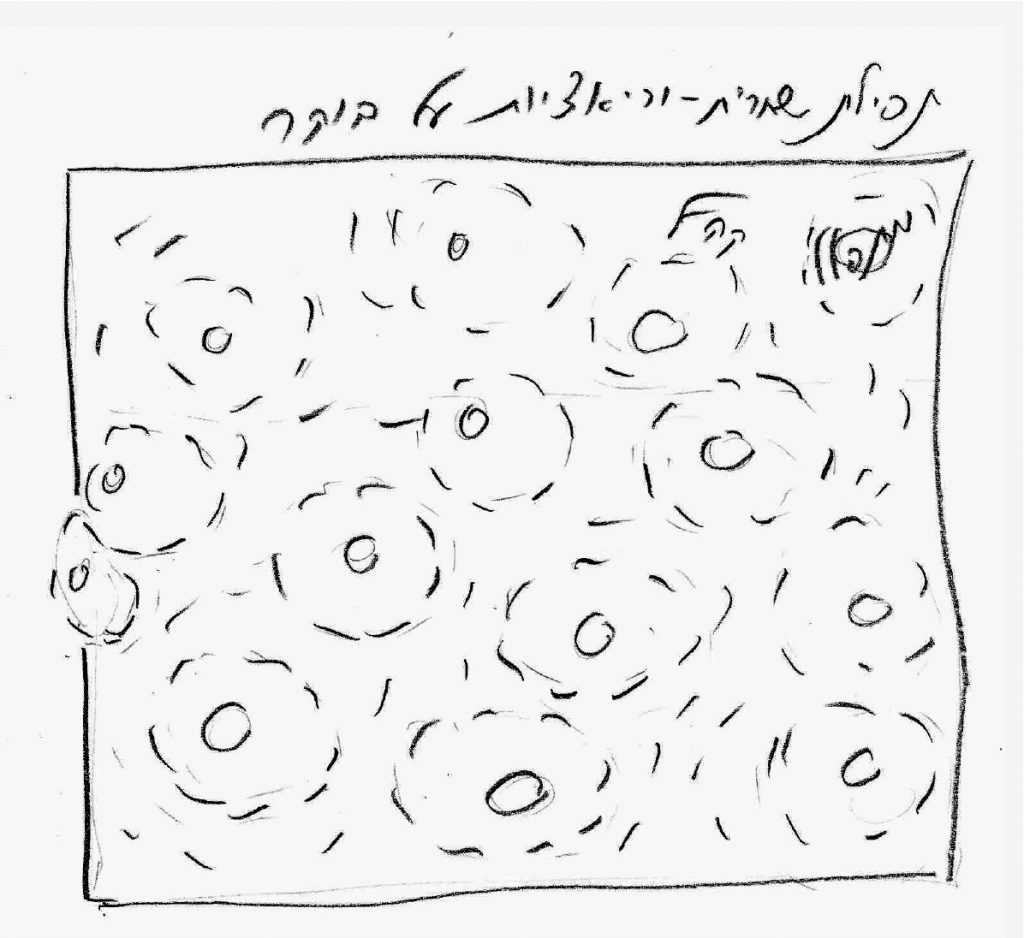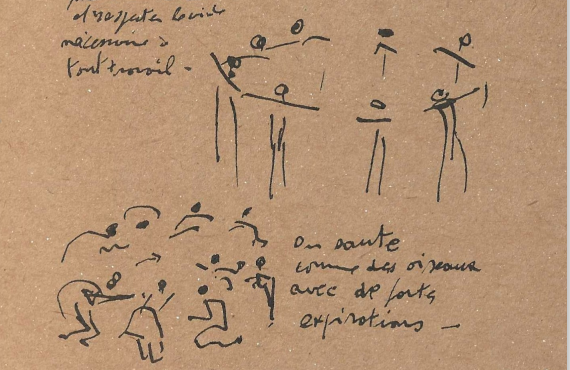The first part of the show consists of two short plays by Samuel Beckett: Breath and An Act Without Words No. 2
The second part of the show is a collective creation based on the text of the traditional Jewish Morning Prayer.
Translation, editing and directing: Michal Govrin
Set and costume: Ada Hameirit
Lighting: Yoram Ben-Yair
Technical management: Shaul Bar-Nahum, Frank Gambel
Cast: the students of the production workshop of the Department of Theatre, The Hebrew University.
The three parts of “Variations on Morning” are different – perhaps contradicting – expressions of awakening, of the beginning of the day. All three are on the verge of exceeding the limits of the theatrical expression.
In the two parts by Samuel Beckett, Breath and An Act without Words No. 2, time, space and acting break their conventional definitions. The first part includes no acting at all: it is written for a stage covered with garbage and a recording instrument; in the second act the human behavior is reduced to a series of mechanical actions. The duration of the first act – Breath – is that of one breath, and in An Act without Words No. 2, this fundamental unit is repeated so that a chain of actions recurs, as the breathing repeats itself and so do the days, from awakening, sleeping and the prayer, which is cut off in the end of the act. The origin of the collective work according to the Morning Prayer was the borderline between acting and prayer: the relationship between man – and between role-playing and man – and a man praying; the relationship between an actor addressing the audience, and man’s act of addressing during prayer.
The structure of the show – a collective occurrence, simultaneous yet not unified, done in a space where the audience and the show are one – originates in the idea of a prayer done by one, but in public, as in the Jewish prayer. The show suggests as well the different characteristics that the same words of prayer attain under different interpretations, or in the way these characteristics are reflected in the changing moods of the praying person. During the show they are performed at once, as a multi-layered consciousness, or as an interpreted page of a prayer book.
The plot was composed according to the succession of the Morning Prayer in the prayer book. Thus, it starts with the prayer of “Modde Anni” (“I am grateful”) in the time of awakening, moves on to the washing of hands and the rising along with the blessings of dawn, and ends with the covering of oneself with the praying shawl and the reading of the portion of the sacrifice of Isaac. Along with the traditional expressions of awakening and praying, the participants have created – through conversations and improvisations – their own personal expressions of these moments, in a way which resembles the different interpretations and intentions of prayers, or the personal thoughts that rise every time one begins to pray. The audience was sitting between the participants, and was in fact invited to the private prayer done in public: the prayer of the performer sitting next to him. Only towards the end, when a cloth was stretched to cover the entire space and was lit as a praying shawl, the whole public – performers and viewers – became a community in prayer.


